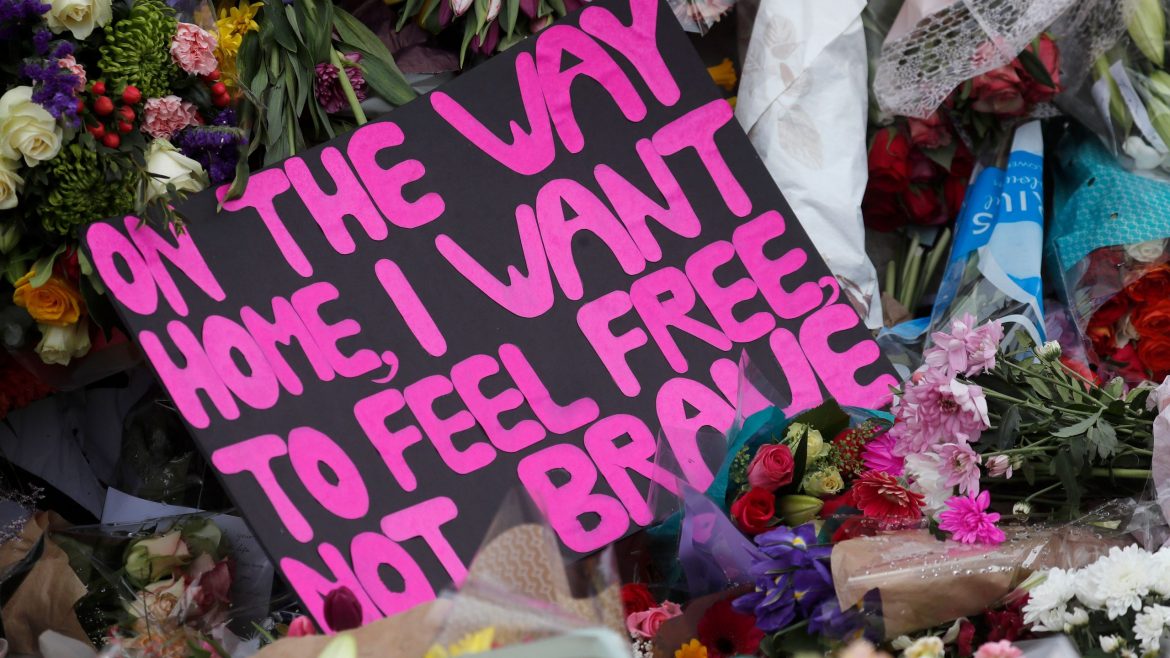BT boss Philip Jansen has made a £50m proposal to tackle women’s safety. Praised by Home Secretary Priti Patel, ‘Walk me home’ would track the user’s whereabouts via an app, and alert a designated contact if they do not meet their destination on time. This service could be set up by Christmas. For a high price, Jansen will achieve nothing but to walk women back to outdated sexist values.
Since former Metropolitan police officer Wayne Couzens abused his position as a police officer to abduct, rape and murder Sarah Everard on her way home earlier this year, the government has faced unprecedented pressure to tackle male violence against women.
Despite the calls for women’s safety that the government has had to respond to, it would serve the public in the long run to be wary of exploitation of women’s fears. Times of heightened public fear can make it easier for the state to grab power. By targeting women, Jansen proposes sexist chaperoning via digital means, packaged up as a safety tool. Meanwhile men – a group more likely to be victims of other types of violence such as assault – are not being equally targeted.
BT’s proposal is yet another example of an initiative that takes the problem of women’s fears of sexual violence, and proposes inciting more fear and restrictive behaviour as the solution.
Take the Ashley, a glamorous-looking rape alarm, advertised to consumers in an assortment of colours from hotpink, to aqua and purple. A selling point is that it aims for its female customer-base to look good using it: “We design Ashley products to look great and accompany you whatever the occasion.”
More invasive examples include various anti-rape pants, including one released in 2017 by a German designer who brags that their “underpants with a number lock” enabled fathers to protect their daughters. Another New York-based company set up a crowdfunder in 2013 for what The Guardian’s Vicky Simister described as a modern-day chastity belt.
Measures like the Ashley and Walk me Home may be based on well-meaning premises, but at what point will it become unfavourable in the eyes of business and government for women not to be scared? By going along with government and businesses’ collaborations on paternalistic schemes, we risk reinforcing patriarchal values that do not serve women. Heightened fear cannot allow women to lead freer lives.
Instead, the money needed for Jansen’s service would be more wisely spent on domestic violence services, which suffered particularly during lockdown.
Chilling as it is, the monster who targets women on their way home accounts for a small piece in the larger picture. Most men responsible for, or accused of, sex-based violence target women known to them. The counting dead women list, read out by Jess Phillips MP in parliament when Sarah Everard was missing, lists murdered women in cases where a man is either responsible or the prime suspect. A substantial proportion appear to involve men known to the victim.
Jansen’s proposed eight-digit sum to walk women home is not the only high price to be paid. We should not encourage women to live in fear on the basis of their gender, and then expect the powerful to serve our best interests when we implicitly consent for them to exploit this fear.
Fear in this case will not achieve anything apart from reinforcing the chauvinistic ideas that progressive societies should wholeheartedly reject.





